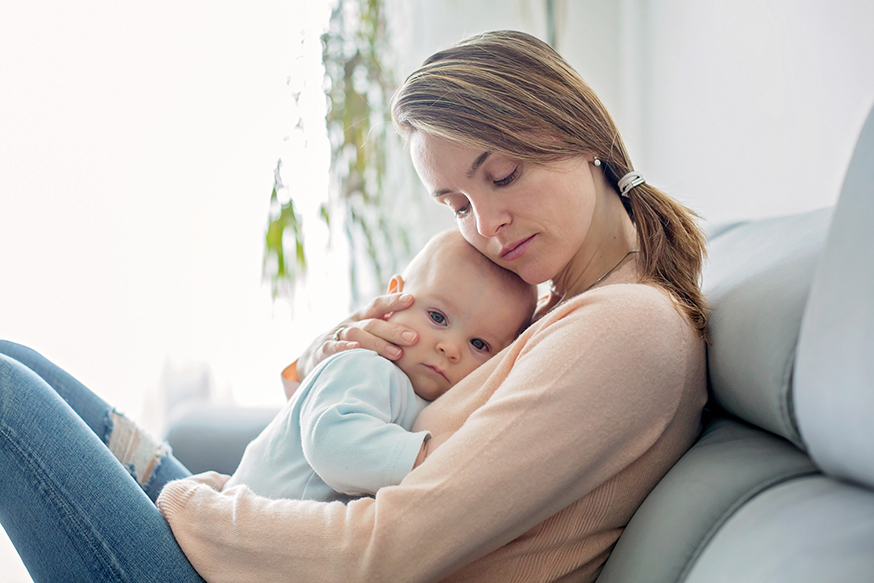
Caring for a Sick Baby: A Comprehensive Guide for Parents
When your precious little one falls ill, it can be an overwhelming and stressful experience for parents. Witnessing your baby’s discomfort and vulnerability can evoke a rollercoaster of emotions, ranging from concern to anxiety. However, it’s crucial to remain calm and composed during these trying times and provide your baby with the utmost care and attention.
This comprehensive guide will equip you with the knowledge and strategies necessary to effectively care for your sick baby. From recognizing the signs and symptoms of common childhood illnesses to administering appropriate medications and providing comfort measures, we will cover every aspect of baby care during sickness.
Recognizing the Signs and Symptoms of Common Childhood Illnesses
The first step in caring for a sick baby is to accurately identify the underlying illness. Here are some common signs and symptoms to watch out for:
- Fever: A temperature of 100.4°F (38°C) or higher is considered a fever in babies.
- Cough: Persistent coughing can indicate a respiratory infection, such as a cold or flu.
- Runny nose: A clear or colored discharge from the nose is a common symptom of colds and allergies.
- Diarrhea: Loose or watery stools can be a sign of gastrointestinal distress, such as a stomach bug or food poisoning.
- Vomiting: Repeated episodes of vomiting can lead to dehydration and electrolyte imbalance.
- Rash: A skin rash can be a symptom of various conditions, including measles, chickenpox, or diaper rash.
- Lethargy: A lack of energy and responsiveness can indicate a more serious illness, such as meningitis or sepsis.
If you notice any of these symptoms in your baby, it’s essential to seek medical attention promptly. Early diagnosis and treatment can significantly improve the outcome of the illness.
Administering Medications Safely and Effectively
In some cases, your doctor may prescribe medications to treat your baby’s illness. It’s crucial to follow the instructions carefully and administer the medications as directed.
- Oral medications: Give oral medications to your baby using a dropper or syringe. Make sure to measure the dose accurately and avoid giving more than the prescribed amount.
- Rectal medications: Rectal medications are typically used for babies who cannot take oral medications. Insert the suppository gently into your baby’s rectum as directed.
- Topical medications: Apply topical medications, such as diaper rash cream or antifungal ointment, directly to the affected area. Follow the instructions on the package carefully.
Never give your baby over-the-counter medications without consulting your doctor. Some medications, such as aspirin, can be harmful to babies.
Providing Comfort Measures
In addition to administering medications, there are several comfort measures you can provide to help your baby feel better:
- Rest: Encourage your baby to rest as much as possible. A quiet and comfortable environment can promote healing.
- Fluids: Offer your baby plenty of fluids, such as breast milk, formula, or water. Dehydration can worsen the symptoms of illness.
- Cool compresses: Apply a cool compress to your baby’s forehead or chest to reduce fever.
- Warm baths: A warm bath can help soothe achy muscles and relieve congestion.
- Massage: Gently massage your baby’s back, chest, or feet to promote relaxation and comfort.
- Humidifier: A humidifier can add moisture to the air, which can help relieve congestion and coughing.
When to Seek Medical Attention
While most childhood illnesses can be managed at home, there are certain situations when it’s essential to seek medical attention immediately:
- High fever: A fever of 104°F (40°C) or higher in babies under 3 months old.
- Persistent vomiting or diarrhea: These symptoms can lead to dehydration and electrolyte imbalance.
- Lethargy or unresponsiveness: A lack of energy and responsiveness can indicate a more serious illness.
- Difficulty breathing: Rapid or labored breathing can be a sign of respiratory distress.
- Rash with fever: A rash accompanied by fever can be a symptom of a serious infection.
- Seizures: Convulsions or uncontrolled muscle movements require immediate medical attention.
Prevention is Key
While it’s impossible to prevent all childhood illnesses, there are several measures you can take to reduce the risk:
- Vaccinations: Vaccinations are one of the most effective ways to protect your baby from serious diseases.
- Hand hygiene: Wash your hands frequently and teach your baby to do the same.
- Avoid sick people: Keep your baby away from individuals who are sick or have recently been exposed to illness.
- Clean surfaces: Regularly clean and disinfect surfaces that your baby comes into contact with.
- Breastfeeding: Breastfeeding provides your baby with antibodies that can help protect against infections.
Conclusion
Caring for a sick baby can be a challenging but rewarding experience. By recognizing the signs and symptoms of common childhood illnesses, administering medications safely and effectively, providing comfort measures, and seeking medical attention when necessary, you can help your little one recover quickly and comfortably. Remember, prevention is key, and by following these guidelines, you can reduce the risk of illness and promote your baby’s overall health and well-being.
